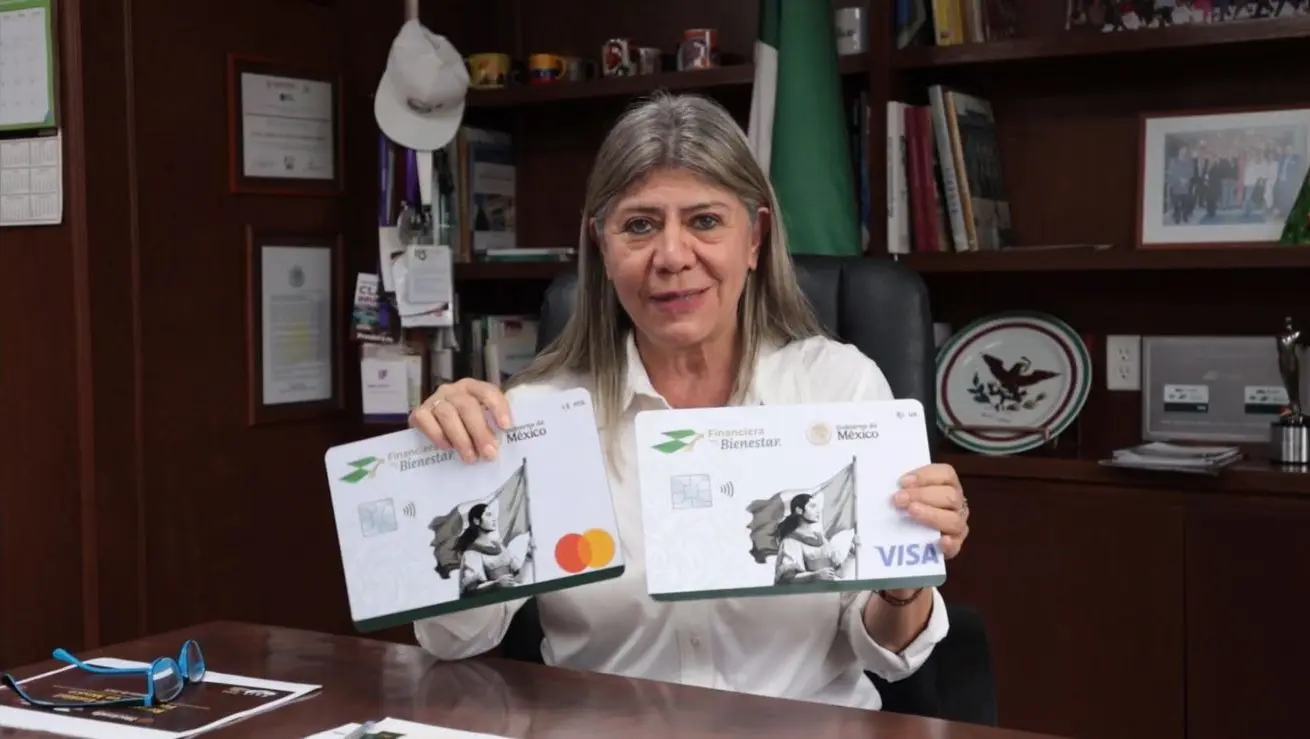
The Mexican migrant community in the United States now has a tool that promises to transform their financial lives: the Finabien Paisano Card, an instrument backed by the Mexican Government that facilitates remittances, promotes banking inclusion, and opens new possibilities for saving and investing.
In an interview with Mexican Press Agency, the Director General of Financiera para el Bienestar (Finabien), Rocío Mejía Flores, explained that the card represents much more than a transfer mechanism.
“It’s not just an electronic wallet. It’s a bank account with which our compatriots can send money, receive their paychecks, deposit checks, and pay for services, both in the United States and in Mexico”, she said.
Every year, Mexican migrants send billions of dollars to their families, often facing high fees and complex procedures. With the Finabien Paisano Card, the process is simplified: sending remittances costs $2.99 USD per transaction, compared to the $7 to $14 charged by traditional money transfer companies.
The usage limit is also competitive: up to $2,500 USD per day and $10,000 USD per month, with full traceability and banking security in both the U.S. and Mexico.
“We want migrants to stop spending on unfair fees. That’s why we lowered the cost and improved the exchange rate. This is a government effort to protect their money,” Mejía emphasized.
One of the diaspora’s biggest concerns is data protection. On this matter, Mejía was categorical: “The only entities with access to the information are the bank and Financiera para el Bienestar. It is not shared with tax offices or treasuries. Their data is fully protected by law.”
Users can apply for the card at any of Mexico’s 53 consulates in the U.S., or request it by mail, receiving it within two weeks, paying only the shipping cost. The process requires three basic documents: a consular ID or official ID, proof of address, and an email account.
Shielding migrants from new taxes
In the current U.S. political context, where a 1% tax on cash remittances is being debated, the Paisano Card becomes a strategic ally.
“That tax will not apply to card-to-card transfers. That’s why we are encouraging migrants to sign up now and get ahead of this scenario,” the official said.
Beyond transfers, the card opens the door to new savings opportunities. Through the app, users can access the “virtual vault”, a feature that offers a 10% annual return for deposits of up to $1,284 USD (24,000 pesos) per month.
Finabien is also working on enabling direct investments in CETES, Mexico’s safest and most profitable government bonds, directly from the card. “The migrant community has asked us for this, and we are already in talks with the Ministry of Finance and the National Banking Commission. We want their savings to work for them,” Mejía said.
With over 60,000 active cards in the U.S. in just one month, the institution seeks to close digital gaps through tutorials, personalized guidance, and the Finabien Friends network, which organizes virtual meetings with migrants in California, Texas, New York, Illinois, and Colorado.
“This is not just any bank or private company; it is backed by the Government of Mexico. We have 170 years of experience in remittance payments. We want our compatriots to know their money and their families are protected,” the director stressed.
Finally, Mejía Flores emphasized that the Paisano Card is part of the “second tier” of the Fourth Transformation, driven by President Claudia Sheinbaum Pardo.
“Our mission is clear: to support our migrant heroes and heroines transparently and without corruption. They sustain their families and Mexico with their hard work. This is an act of justice for those who have never stopped sending support to their homeland,” she concluded.
With the Finabien Paisano Card, the institution seeks not only to lower remittance costs but also to financially empower the Mexican diaspora, strengthening their bond with the homeland they left behind—one that continues to welcome them with open arms.
Related: Finabien, Best Option for Sending Remittances: Profeco